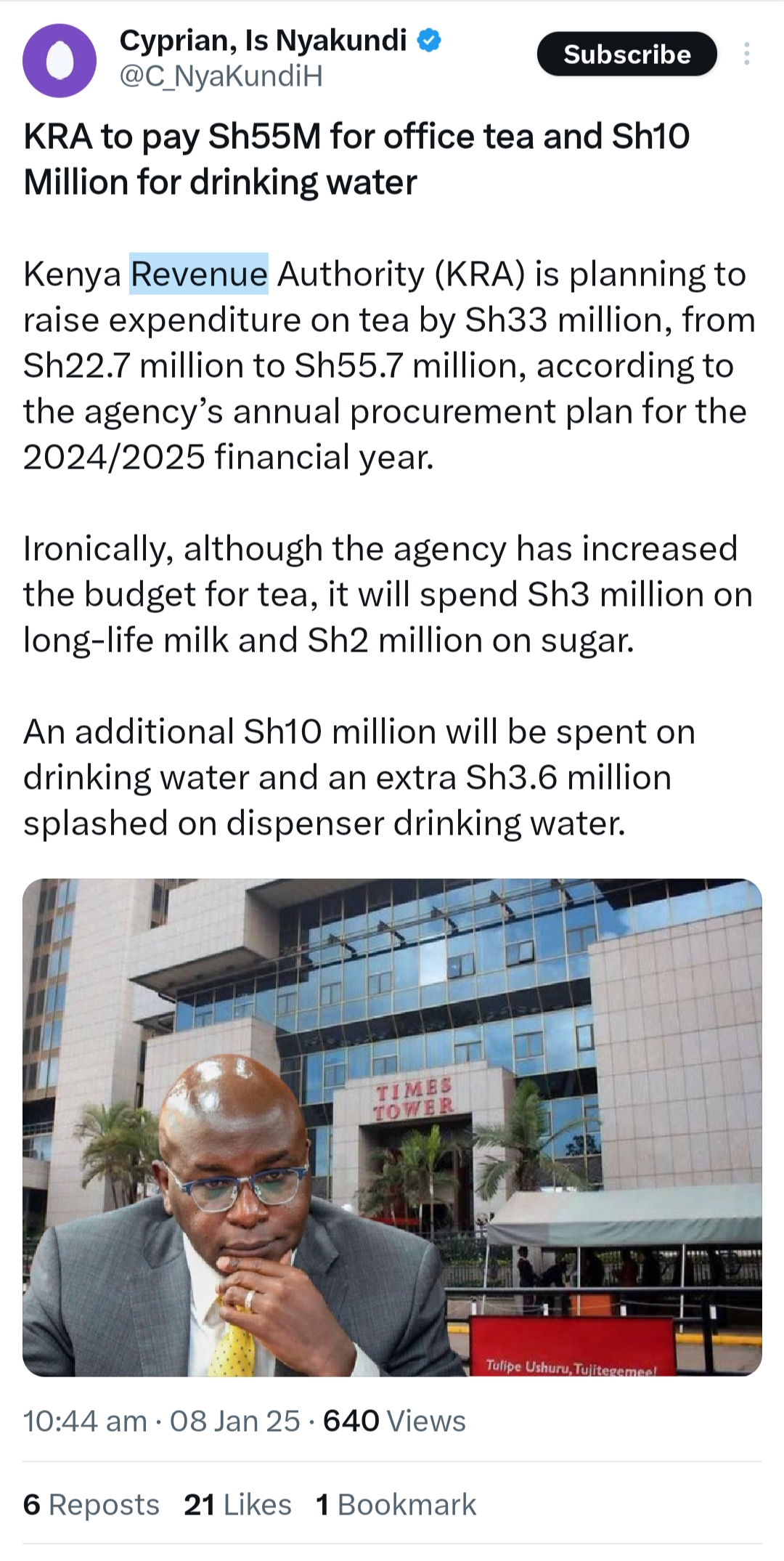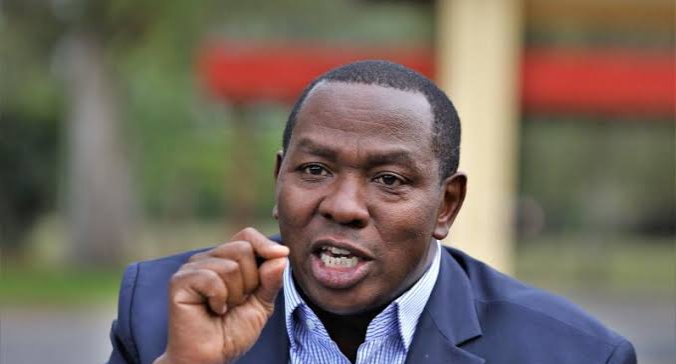Kenya Revenue Authority (KRA) has sparked outrage after revealing plans to increase its budget for office tea by a whopping Sh33 million in the upcoming 2024/2025 financial year.
According to a post made by blogger Cyprian Nyakundi on X on January 8, this move will raise the tea budget from Sh22.7 million to a staggering Sh55.7 million, leaving many questioning the priorities of the government agency, especially in these tough economic times.
But that’s not all. KRA has also set aside Sh10 million for drinking water and an additional Sh3.6 million for water dispensers.

KRA headquarters in Nairobi. Photo: Citizen TV Kenya Source: Facebook
And while it might sound like the basics for any office, it doesn’t stop there – Sh3 million will go towards long-life milk, and Sh2 million will be spent on sugar for tea. All these costs seem to be rising at a time when Kenyans are grappling with the pressures of rising living costs.
The agency, led by Commissioner General Humphrey Wattanga Mulongo and Chairman Nderitu Muriithi, the former Laikipia Governor appointed by President William Ruto just last December, insists that the expenses are necessary to maintain office operations and staff welfare.
But this justification has done little to quell the backlash from those who believe this is a waste of taxpayers’ hard-earned money.

As KRA prepares to fork out millions for basic office supplies, many are left wondering if this is the most responsible use of funds, particularly when so many Kenyans are struggling to make ends meet.
In a country where financial accountability is increasingly called for, it’s hard to ignore the uncomfortable reality that some public institutions seem to be out of touch with the needs of the very people they are supposed to serve.




